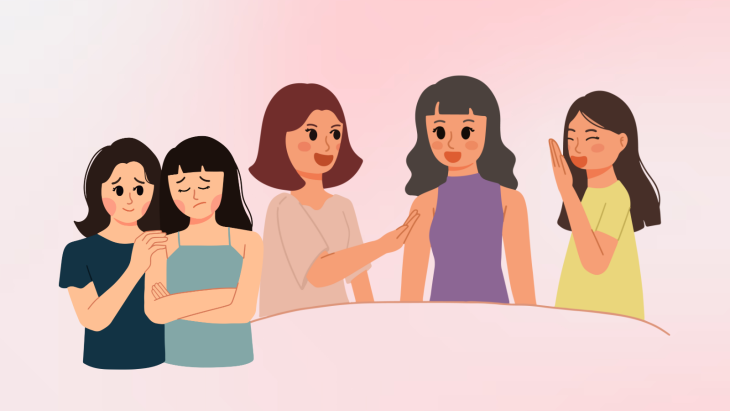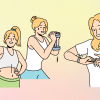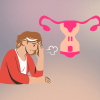Recent Posts
- Am I too sensitive to noise? It drives me crazy! The psychological effects of noise on mental health
- What are the signs that I am avoiding grief? How avoiding processing loss impacts mental health
- My son's disruptive behavior is affecting his life. How can I help him improve?
- I want to be ready for motherhood: Exploring pre- and postnatal mental health issues
- Effects of positivity on job search motivation. How do I stay confident when my job search gets tough?
Most Popular
My friend's excessive attention-seeking gets to me! Is this a sign of histrionic personality disorder?

She is the life of the party. She is vibrant, always seems to be full of life. Everybody is drawn to her and gets charmed. Your best friend has people dancing on the palm of her hands. But you notice that once people get close to her on a personal level, they discover that her seemingly extroverted and lively character stems from possibly a distorted image she has of herself.
When she does not get her way in her relationship, even in your friendship, she becomes dramatic, to the point of being hysterical. This goes on for some years, and you finally reach your breaking point. You are exhausted; you are tired of setting up boundaries for healthy behavior.
Is it worth pursuing a friendship with her?
Loving someone who may have a personality disorder is not only challenging, but it is taxing to one’s mental and emotional resources. If you are not guided, you might spiral into traumatic experiences with that person. What can you do as a concerned friend?
What is histrionic personality disorder (HPD) compared to other personality disorders?
HPD is part of a cluster of personality disorders that is marked by overly dramatic and erratic behavior. A qualified and licensed mental health professional like a psychiatrist is able to differentiate HPD among other personality disorders in this group which includes:
- Narcissistic personality disorder (NDP). People with NPD want to be admired and respected, while people with HPD want any type of attention as long as they become the center of it.
- Borderline personality disorder (BPD). People with BDP see themselves as bad people and have intense emotions, while people with HPD may not see their actions as bad or negative.
- Dependent personality disorder (DPD). People with DPD show more anxiety and worry when dealing with others, while people with HPD appear very friendly and energetic.
There is now no known cause for HPD, but decades of research suggests that it might be a combination of genetics and childhood experiences, trauma, and learned behaviors in childhood.
In order for HPD to be properly diagnosed, the person who has these signs have been known to display these behaviors for a long period of time and consistently. With proper referral to a mental health professional and treatment, guidance and support, that person and their significant others can have healthy relationships.
1. Learn about personality disorders and HPD. When you are aware of the signs, you have more understanding and patience with a loved one with HPD. Also, it helps you not to take all their actions as offensive or as a personal attack.
2. If you are close with their partner, talk to them about therapy, especially couples therapy. One challenge with getting treatment for HPD is that the person who has it might not be aware that they have a problem, and they might not see that their behavior is negatively affecting people who love them.
In marital therapy, the couple may be able to process the issues with a qualified therapist who knows how to help someone with HPD.
3. Learn to set healthy boundaries. Being exposed to constant attention-grabbing, approval-seeking, manipulation, or drama in your friendship might take a toll on your own mental and emotional health.
So, be sensitive to how this friendship affects you as well, and learn to set healthy boundaries. With this, also be aware of your limits and assess if the friendship is harmful and when to possibly end it.
Once getting treatment, a person with HPD may be undergoing psychotherapy to help them process their emotions and experiences with a licensed therapist. Cognitive behavioral therapy has proven to produce positive effects on HDP clients.
In this case, aside from the above-mentioned tips, the best way you can help a friend who might have HPD is helping them to get access to early diagnosis and treatment.
Discover mental health and healthcare jobs near you and start a fulfilling career in the health industry.








Comments